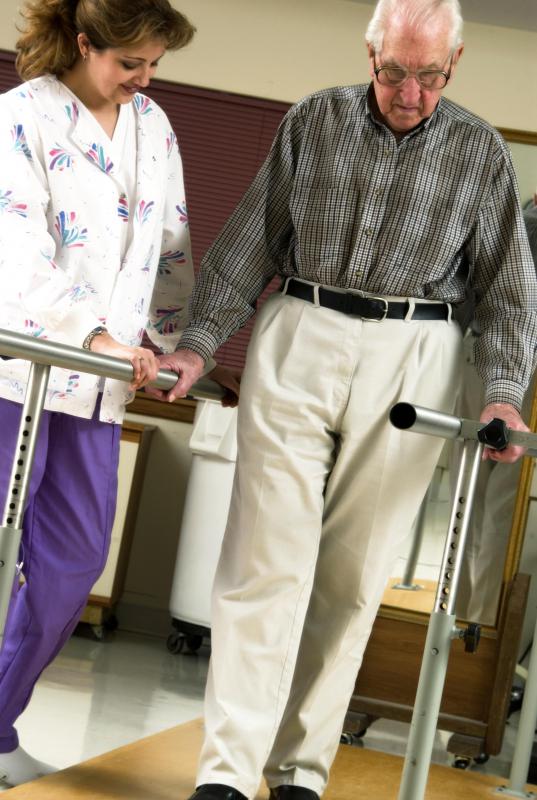At SmartCapitalMind, we're committed to delivering accurate, trustworthy information. Our expert-authored content is rigorously fact-checked and sourced from credible authorities. Discover how we uphold the highest standards in providing you with reliable knowledge.
What is Medical Retirement?
Medical retirement is an early retirement from a job because of an acquired disability that makes it impossible to continue working. Depending on workplace policies, the employee may be eligible for some retirement benefits. It is also usually possible to file for income assistance from the government when disabilities render a person unable to work. In order to qualify, people must typically have evidence from a doctor supporting their medical retirement claim.
Illnesses and injuries do not have to be workplace-related for people to go into medical retirement. People can acquire disabilities in a variety of ways. Patients will need to meet with their doctors to discuss the situation, and so the doctor can examine the patient and determine the nature of the disability and its permanence. For temporary problems, the doctor may recommend filing for medical leave, allowing the patient time off so she can return to work after she has recovered.

If a doctor believes a disability is permanent and makes it impossible for the patient to work, he can write up a report with the findings. The employee submits this to the workplace with a request for medical retirement. Human resources staff will review the materials and determine whether to grant the request. They can also provide information about how to access retirement benefits and other assistance from work; a workplace may offer severance pay or a settlement, for example.

People who retire from a job for medical reasons may technically be capable of working at a different job. This can lead to a denial of disability benefits or income protection insurance, depending on government policies. People can ask a medical professional to determine whether they are completely unable to do any work. It may be necessary to undergo periodic reevaluations to see if the patient is recovering, depending on government policies.

Disabilities that lead to medical retirement can happen to anyone, and people may want to make some preparations for it. A employee should be familiar with the policies in his or her workplace so that, in the event of a medical retirement, he or she is prepared ahead of time. Professionals, like doctors and attorneys, may want to consider purchasing income protection insurance, with a rider specifying that insurance benefits kick in when they are certified as unable to work in their chosen professions. If a doctor can no longer practice, for example, the insurance will provide regular payments even if the doctor could perform other work.
AS FEATURED ON:
AS FEATURED ON:















Discussion Comments
This kind of retirement must be particularly difficult for people to deal with. I know that it's said that people will often die more quickly once they retire, simply because they feel like they no longer have a purpose.
If you've got a medical problem that prevents you from working, it probably prevents you from doing anything else as well. So a medical or disability retirement must be a very frustrating situation.
@pastanaga - I always thought of medical retirement as something that would happen to someone else, or maybe something that would happen when I was much older. But you never know what might happen to you or when it might happen.
My best retirement advice is to start saving early, and save as often as possible. One of my friends has a policy that he always puts ten percent of any income he receives into a savings and investment package and I think that's a good minimum.
You might not end up needing it, but it won't be going anywhere. You can always spend it on something else if that happens to be the case.
@anon203049 - Just make sure you pick a policy that will actually pay up properly if you ever need to use it. I've heard bad stories about people who were only able to get a fraction of what they expected because of the fine print on their policies.
I think it is particularly bad because these are people who thought ahead to try and mitigate any loss from medical retirement or other problems with work and they still ended up in financial trouble, even with decent retirement strategies.
I am going to look into the income insurance!
Post your comments